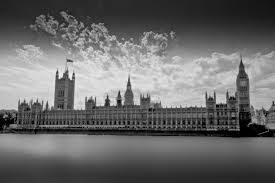Depending on the outcome of the UK Government’s appeal to the Supreme Court on the issue of whether Parliament has to be consulted about the decision to give notice under Article 50 to leave the EU, the procedure which must lead to ratification of the Unified Patent Court Agreement could be the first case since the Brexit vote where the UK Parliament gets a say on an EU-related issue. Apparently, the government is confident it will be able to convince Parliament that the Unitary Patent system is good for the UK, says Bristows partner Alan Johnson, but ‘you never know with politics’. Kluwer IP Law spoke to Johnson about the steps which need to be taken in the UK in order to complete the UPCA ratification.
The announcement last week by Minister of State for Intellectual Property, Baroness Neville Rolfe, that the UK will continue with preparations for ratification of the Unified Patent Court Agreement has received a warm welcome. The Brexit vote of 23 June 2016 had created a lot of uncertainty, as UK ratification is a precondition for the Unitary Patent system to start functioning, and it wasn’t certain whether the UK would still be willing to support it. Since Neville Rolfe’s announcement, the expectation is that the Unitary Patent system can start functioning within a year.
 Unless, of course, the ratification procedure in the UK runs into trouble in Parliament, which has the final say. Important steps had already been taken before the Brexit. The Patents Act was amended in 2014, enabling more detailed secondary legislation to be passed earlier this year.
Unless, of course, the ratification procedure in the UK runs into trouble in Parliament, which has the final say. Important steps had already been taken before the Brexit. The Patents Act was amended in 2014, enabling more detailed secondary legislation to be passed earlier this year.
According to Alan Johnson, the main potential issue is the Protocol on Privileges and Immunities (PPI), which was signed by other member states of the Unitary Patent system on 29 June 2016, just days after the Brexit vote.
‘The UK needs a statutory instrument (SI) to enact the PPI – which gives the court legal personality in the UK and privileges and immunities to the court and its staff on UK soil. That SI is subject to a so-called affirmative procedure. It needs to be passed through the UK House of Commons and House of Lords and also the Scottish Parliament, which will each have a committee consider it.
Therefore, even although at one level it’s a pretty anodyne stage, those committees will know obviously what the SI is for – to enable ratification of the UPCA – and could ask the politically tricky question as to whether it was appropriate to take this step when the UK was leaving the EU, and how this was consistent with the Government’s stance the “Brexit means Brexit” and hence potentially cause a problem.’
Johnson expects the Commons to pass the SI without problem, however, since the majority of MPs are pro-EU, and only the most ardent Brexiteers would be likely to raise an objection. But it may be different in the House of Lords, he thinks, as they are unelected. Although again the majority favour remaining in the EU, some Brexit-minded Lords may be less concerned about expressing an anti-EU sentiment.
‘But whether in the Lords or in the Commons, the Government has a good story to “sell” the case for the UPC as part of the process: legal services jobs, good for industry, that sort of thing. Another point is that this can be viewed as an international rather than EU court, with British judges and a base (two technically – Local and Central Divisions) in London – and is something the UK has been looking to establish for many years, quite separately from the EU.’
 In any event, Johnson is ‘pretty confident the UK will get through all this ok because the Baroness said what she did as a matter of Government policy, so obviously this has been approved higher up, and of course the Baroness will herself be on the relevant Lords’ Committee. Hence it seems unlikely that the other Conservatives on the Committees would actually cause a problem. In Scotland the pro-EU Scottish National Party has control, so a vote against there would be surprising. I hope not, but the trouble is that you never know with politics, and as far as I know, this may be the first case in Parliament post-23 June when a situation has arisen where Parliament gets a say on an EU-ish issue. So something could possibly go wrong if this somehow becomes a political football.’
In any event, Johnson is ‘pretty confident the UK will get through all this ok because the Baroness said what she did as a matter of Government policy, so obviously this has been approved higher up, and of course the Baroness will herself be on the relevant Lords’ Committee. Hence it seems unlikely that the other Conservatives on the Committees would actually cause a problem. In Scotland the pro-EU Scottish National Party has control, so a vote against there would be surprising. I hope not, but the trouble is that you never know with politics, and as far as I know, this may be the first case in Parliament post-23 June when a situation has arisen where Parliament gets a say on an EU-ish issue. So something could possibly go wrong if this somehow becomes a political football.’
As well as approval of the Protocol on Privileges in both Houses, the Unified Patent Court Agreement itself ‘lies in Parliament for 21 sitting days and although there is no vote on that, it sits there and objections can potentially be raised – which is unlikely though if the PPI has got through Parliament ok. Then the UK is ready to ratify’, says Alan Johnson. He expects this will be around April 2017.
The last step in the procedure is the preparation of the UK’s instrument of ratification by the Foreign Office, its signature by the Foreign Secretary, and the deposit with the EU Council in Brussels. This is a purely formal step, though it may be delayed for a practical reason: to control the precise timing of the start of the UPC when everything is fully ready.
For regular updates on the Unitary Patent and the Unified Patent Court, subscribe to this blog and the free Kluwer IP Law Newsletter.
________________________
To make sure you do not miss out on regular updates from the Kluwer Patent Blog, please subscribe here.



There is also the question of whether Germany will ratify soon or wait until Brexit negotiations have clarified whether the UK will be part of the Unitary Patent system long term. My understanding is that rbw current position of the German government is to wait but will this change following the UK’s announcement?